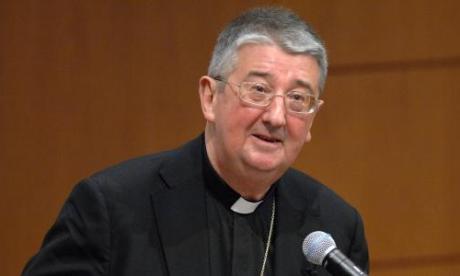The Archbishop of Dublin says society could cherish gay people’s rights and relationships, while respecting the uniqueness of the male-female relationship.
Archbishop Diarmuid Martin was speaking to a group of diocesan communications officers, ahead of Ireland’s referendum on legal same-sex marriage on May 22.
“There can be an ethic of equality which is an ethic of recognising and respecting difference,” he said.
“A pluralist society can be creative in finding ways in which people of same-sex orientation have their rights and their loving and caring relationships recognised and cherished in a culture of difference, while respecting the uniqueness of the male-female relationship.”
The archbishop acknowledged the Church had, at times, used “harsh”, “insensitive and overly judgmental” language to present a message of love.
He said that the Church had given “harsh” treatment to gays and lesbians in the past – “and in some cases still today”.
It had also presented rational argument as a dogma everyone must accept.
But this was no justification for people today to replace dogmatism with “sound-bite-ism” as a way of avoiding rational debate, he said.
He was critical of politicians on this score.
Nonetheless, the Church still needed to learn to voice its criticism “clearly and without fear”, but in language that “which respects her Master”.
He chided people who say the debate is not a religious one, yet selectively quote the Pope.
“I find it interesting that many of those supporting the yes campaign object to the use of religious language, but they are not shy in quoting Pope Francis in support of their arguments, although I feel that their knowledge of Pope Francis’ repertoire is somewhat restricted,” he said.
The “complementarity of men and women, of male and female, in the nature of humanity” is a fundamental philosophical concept, Archbishop Martin said.
“That we exist as male and female is not a marginal dimension of being human,” the archbishop added.
The Church’s teaching on marriage and the family and its relevance to social ethics will remain the same, whatever the referendum result might be, he said.
Sources
